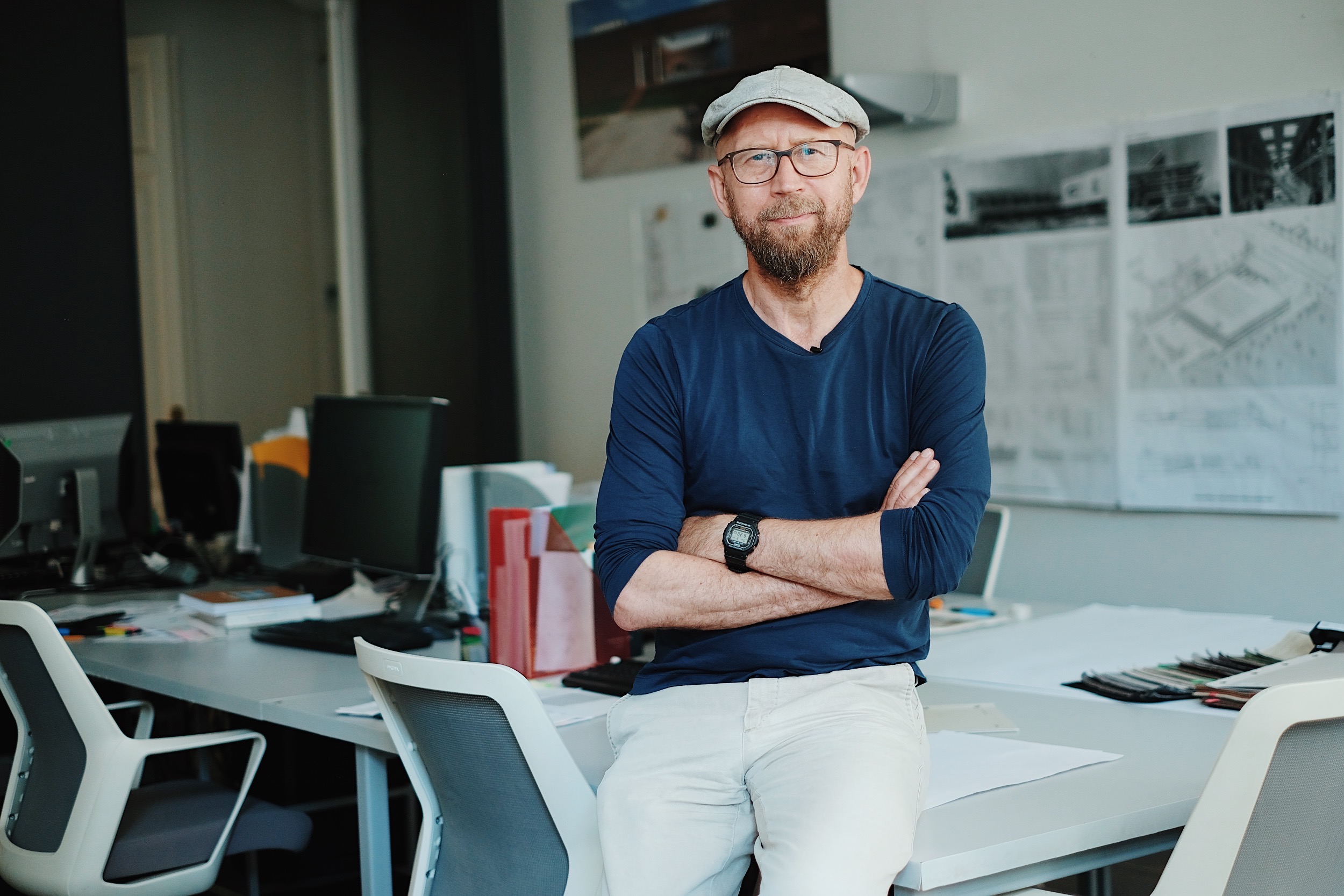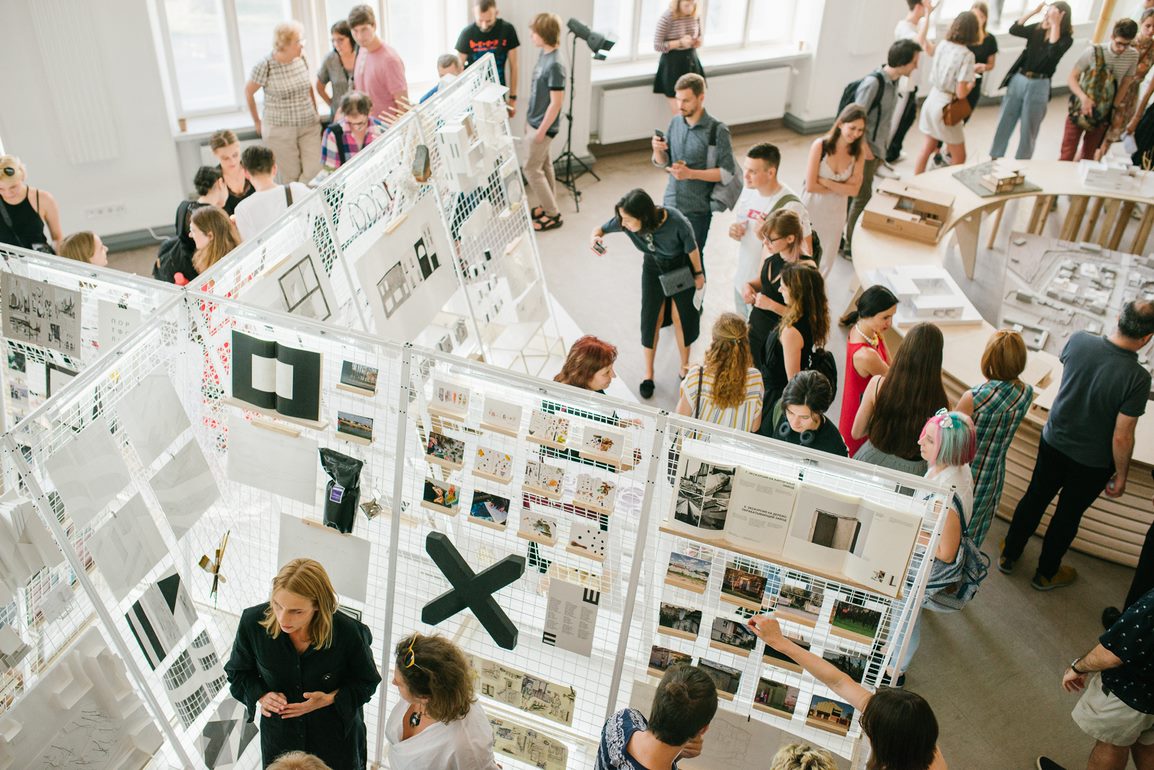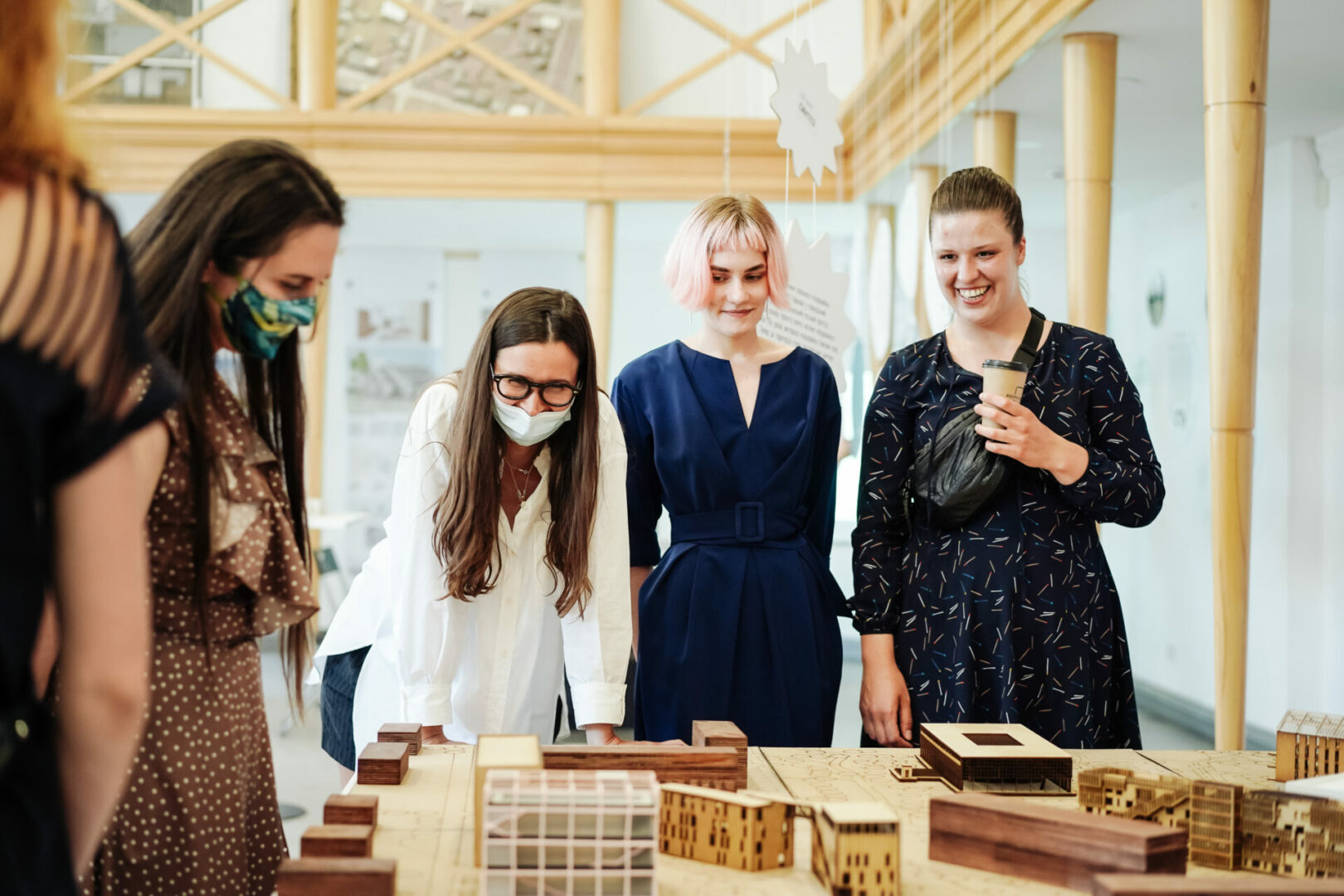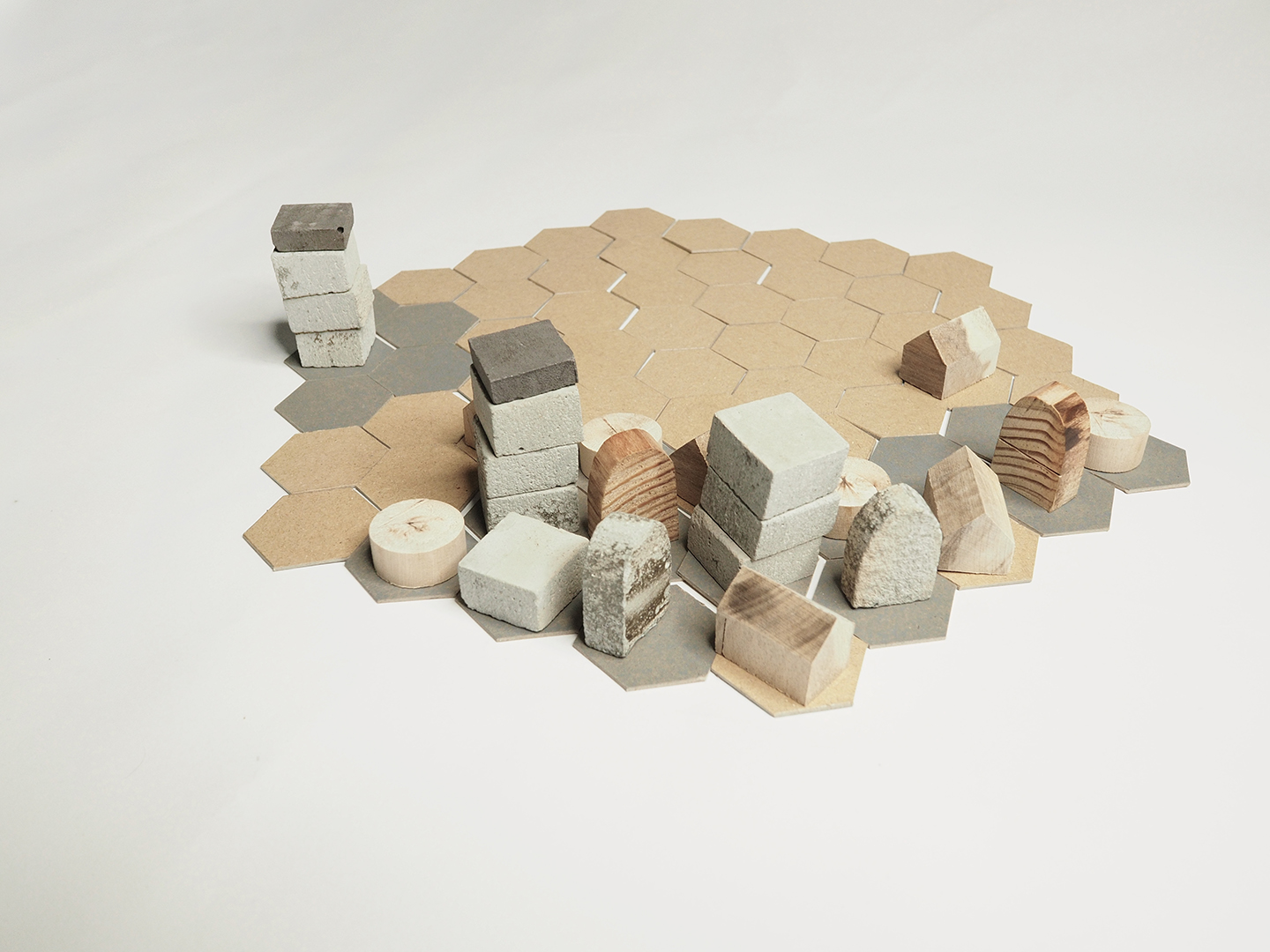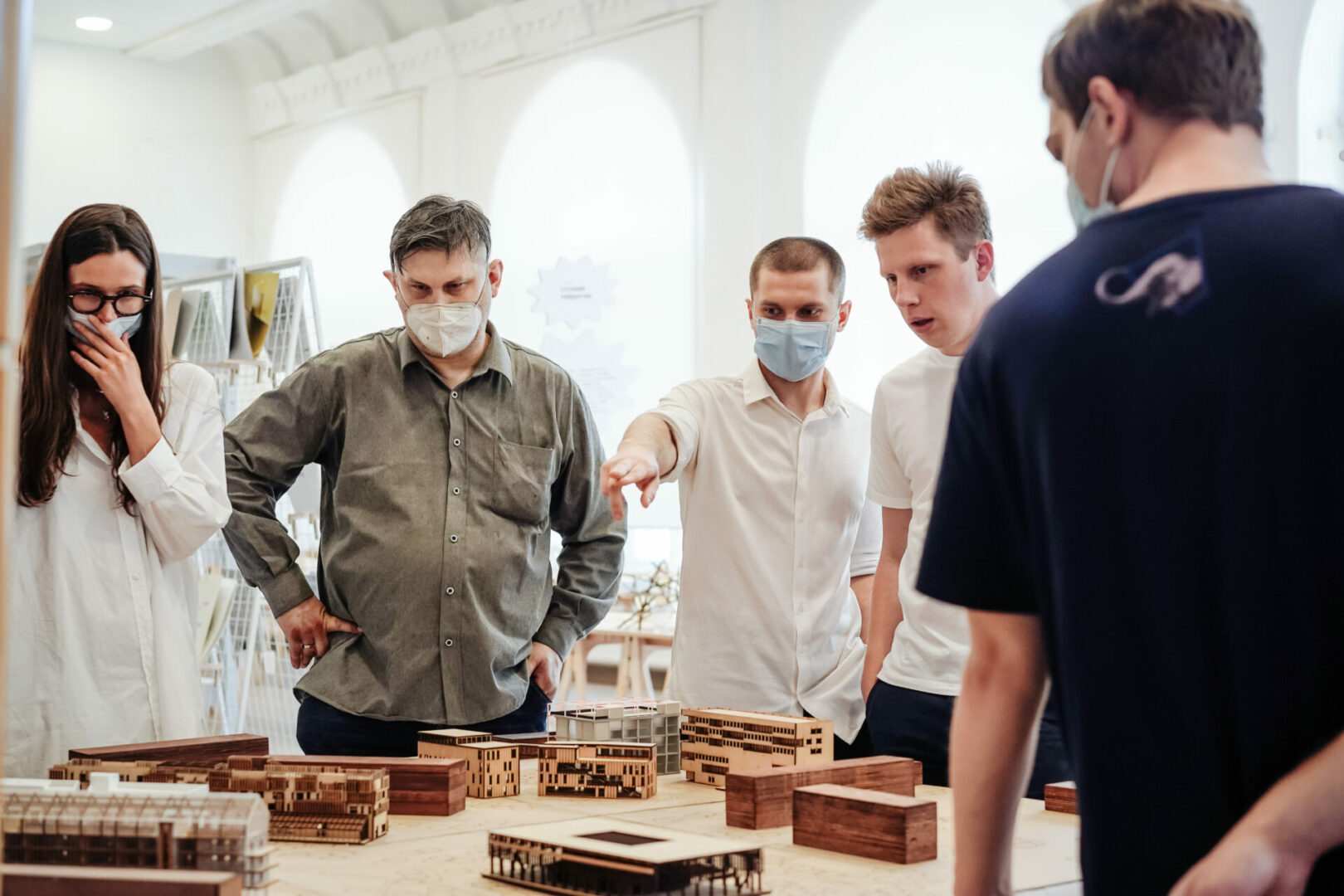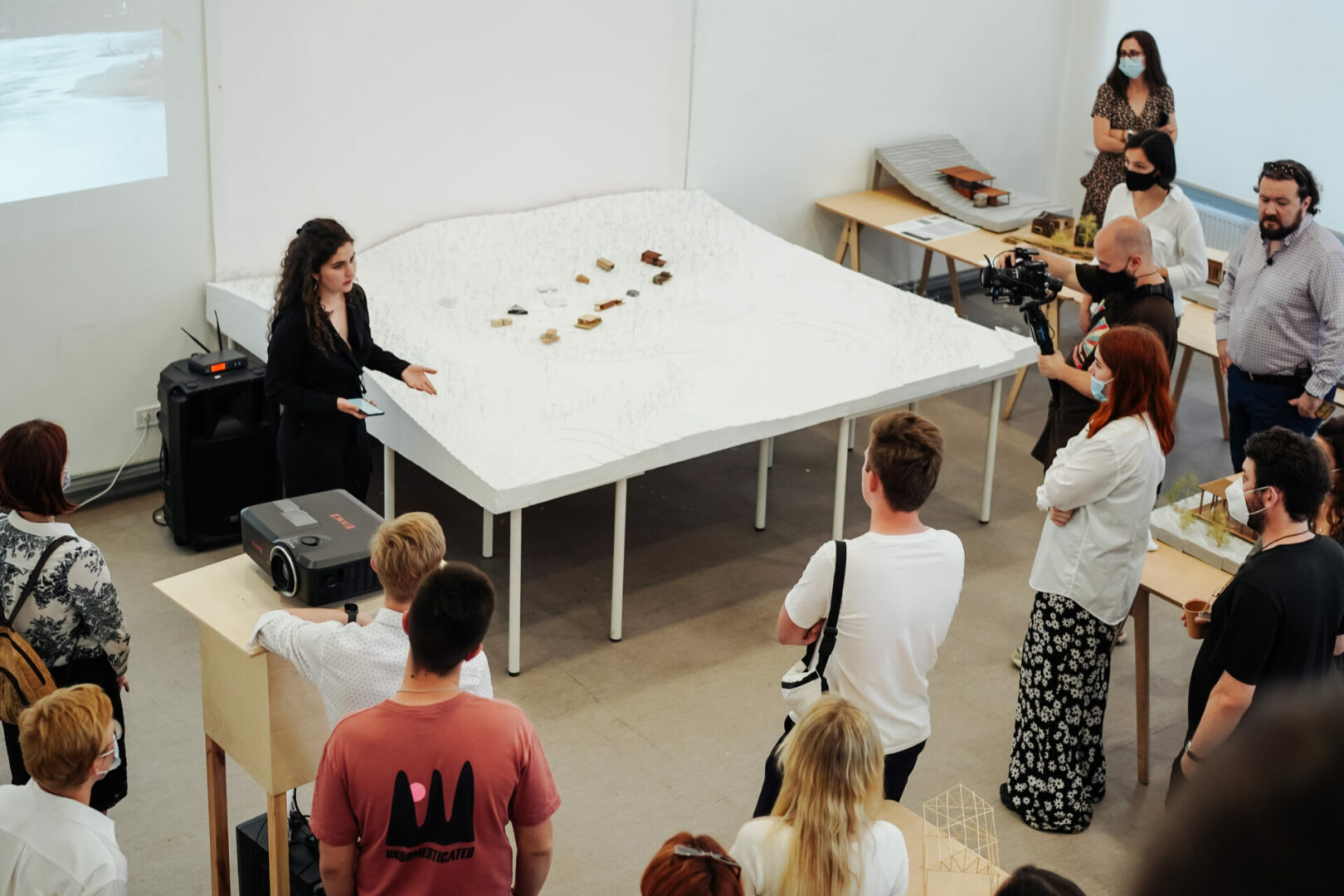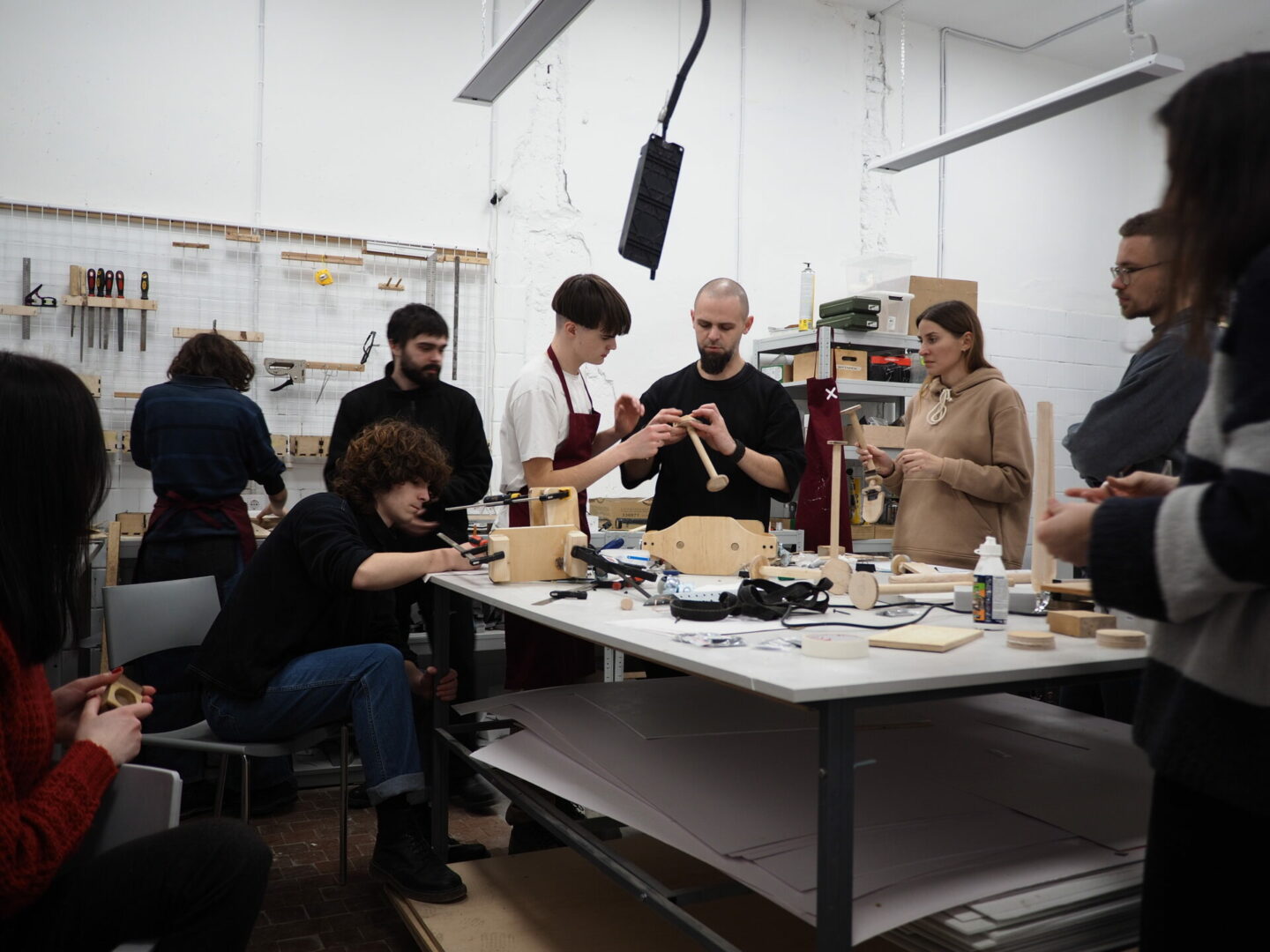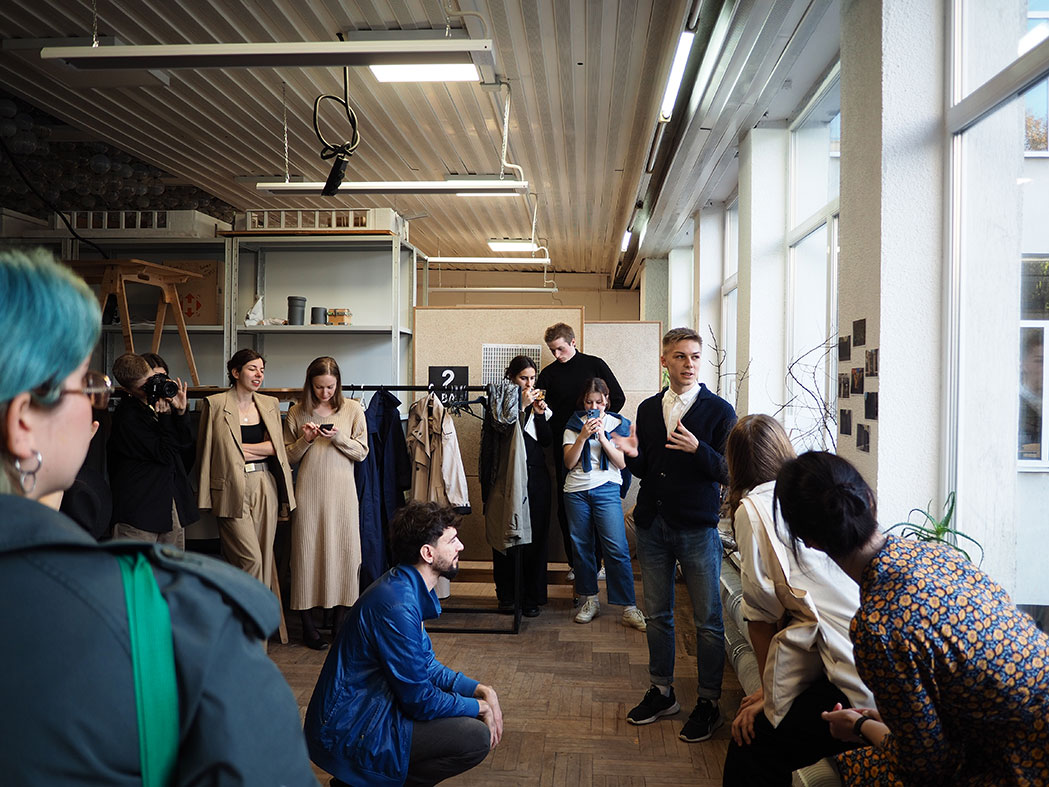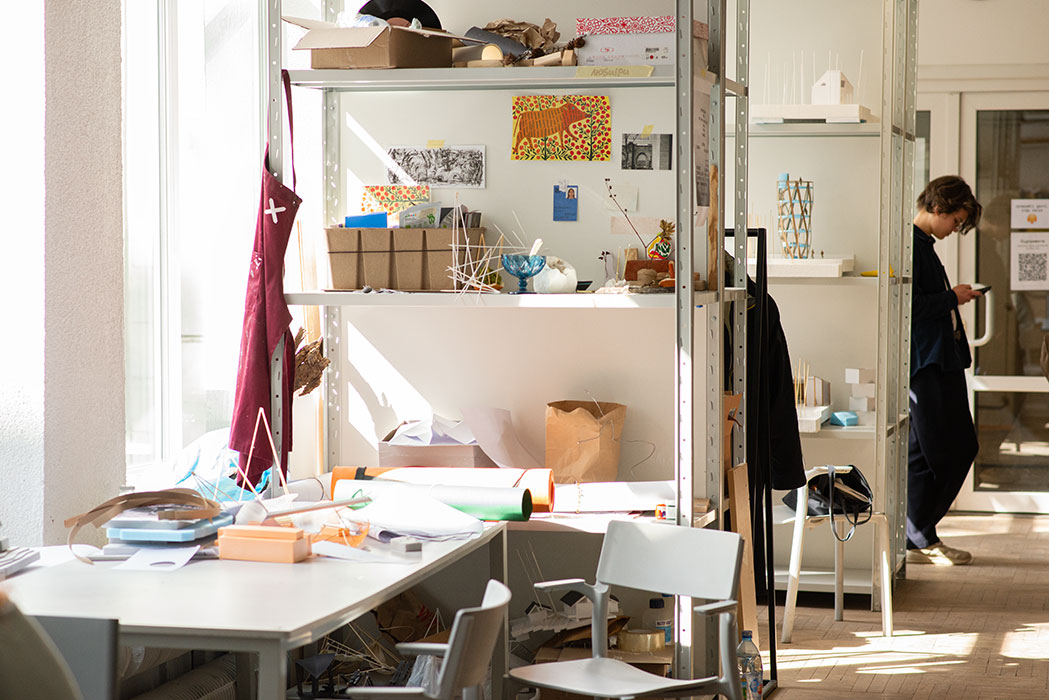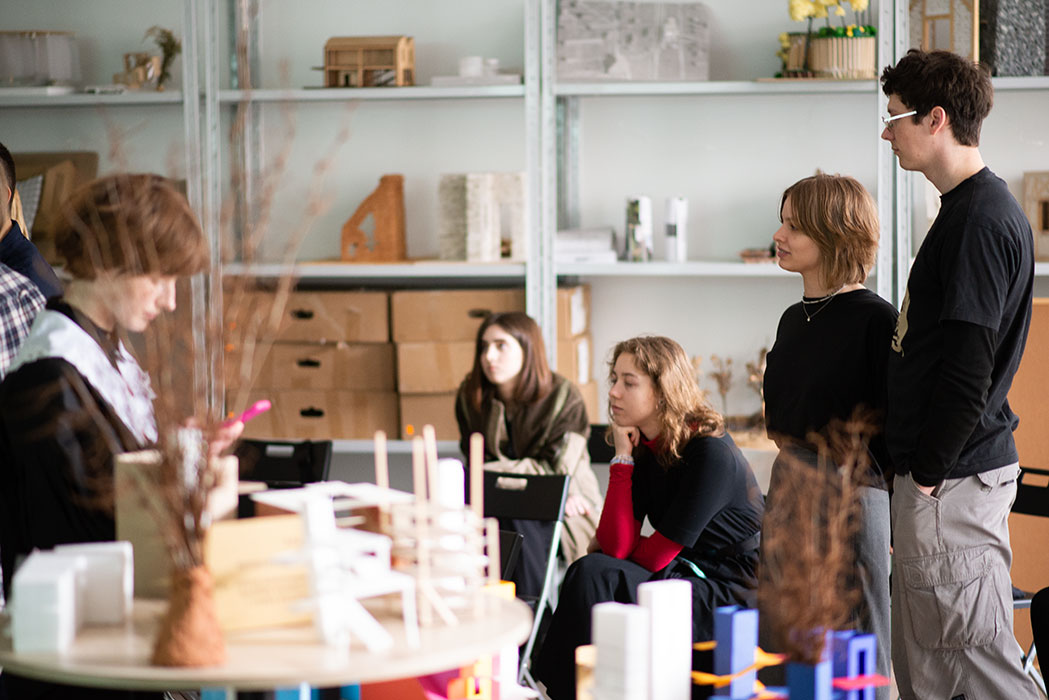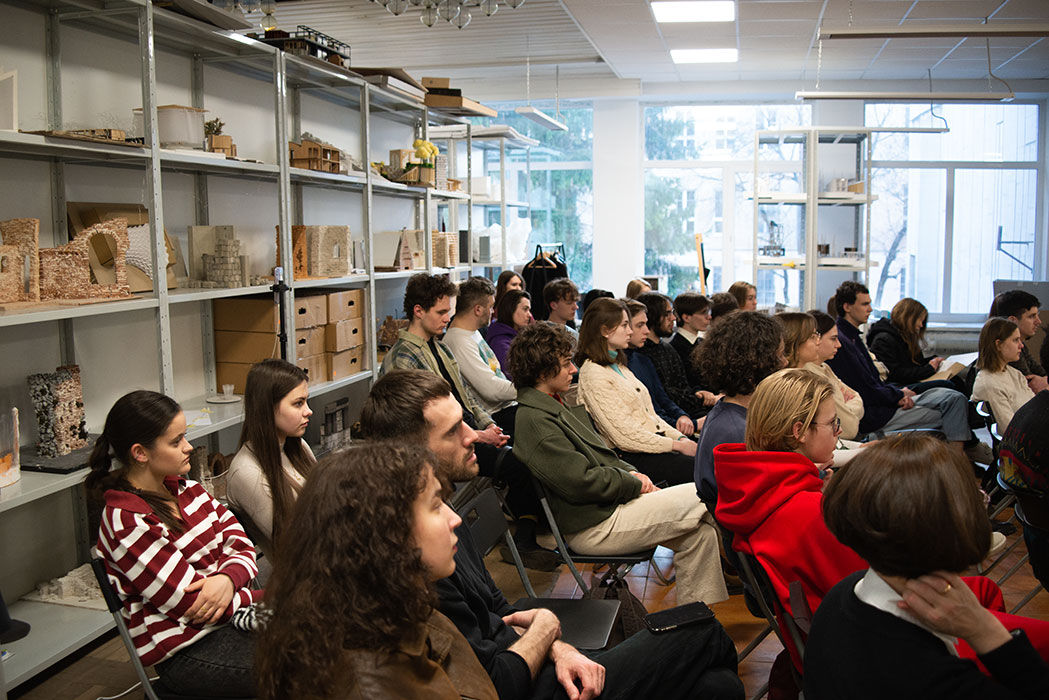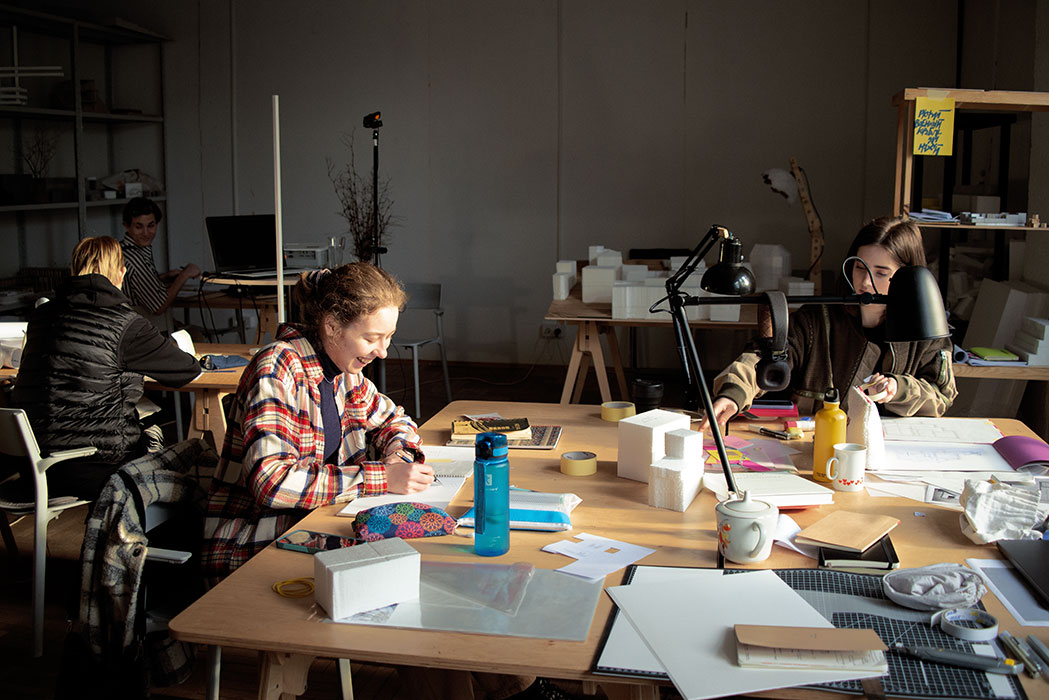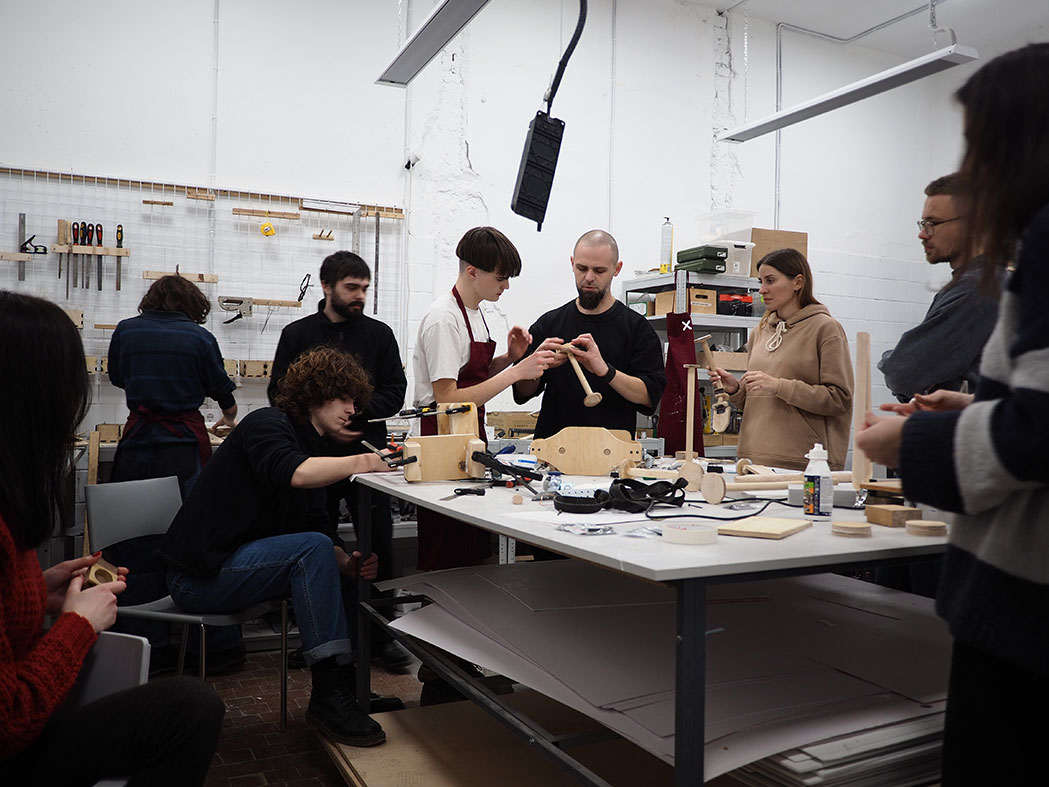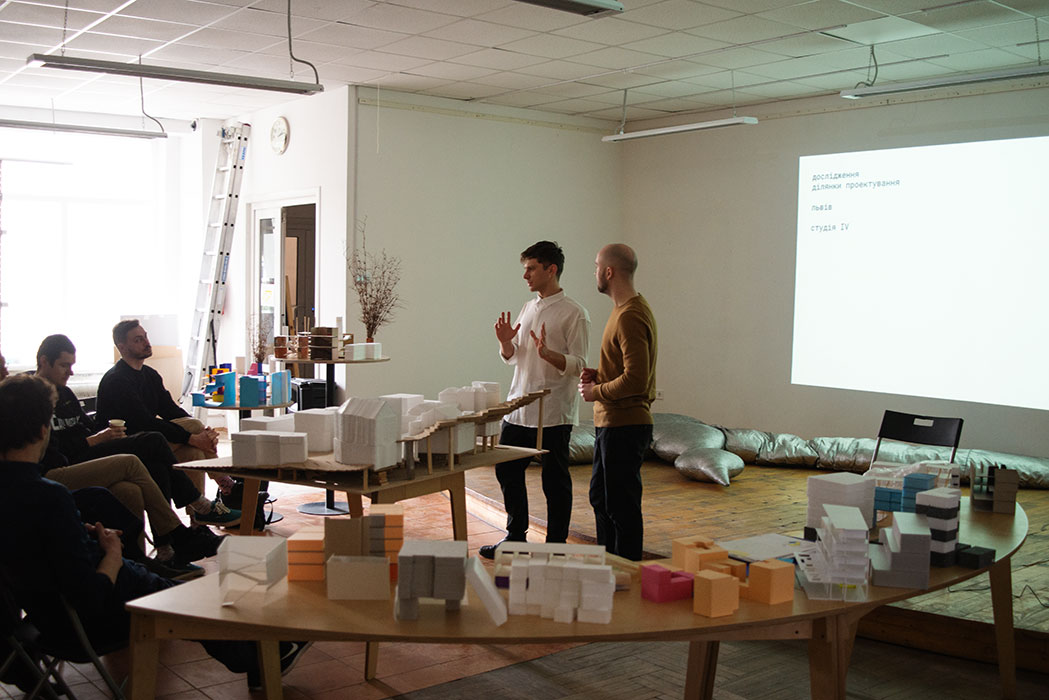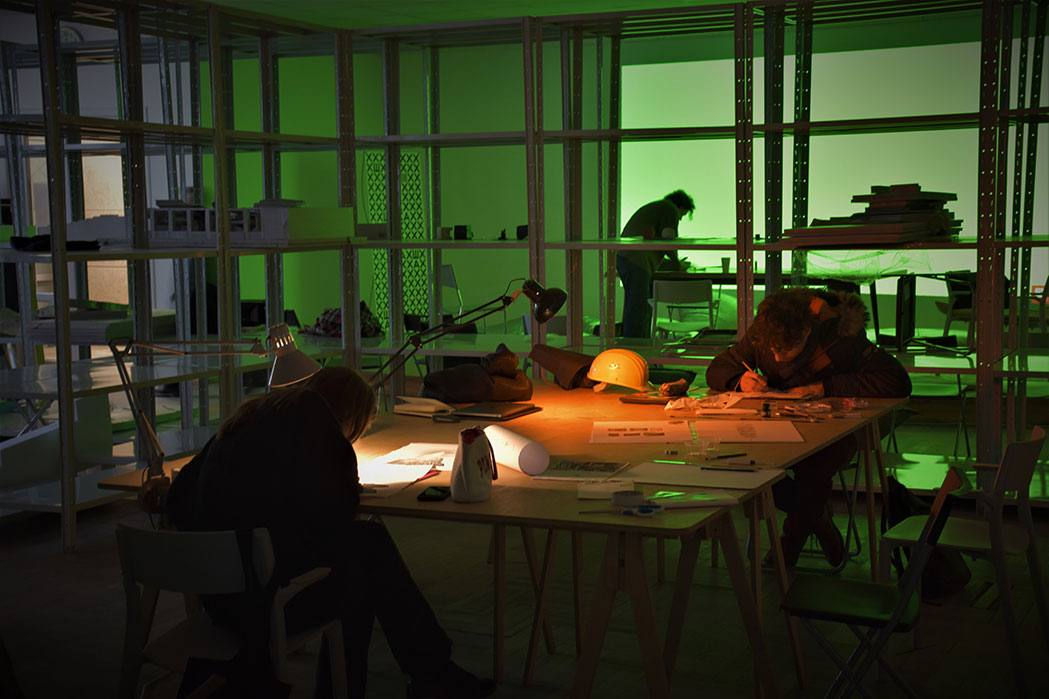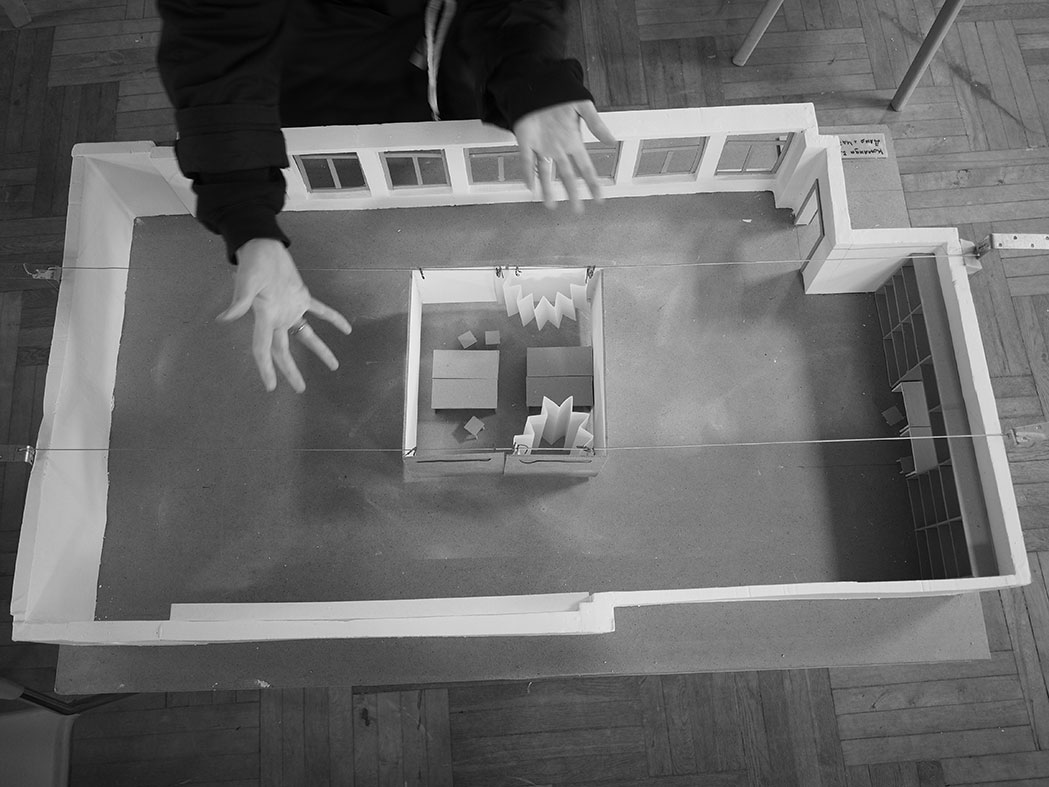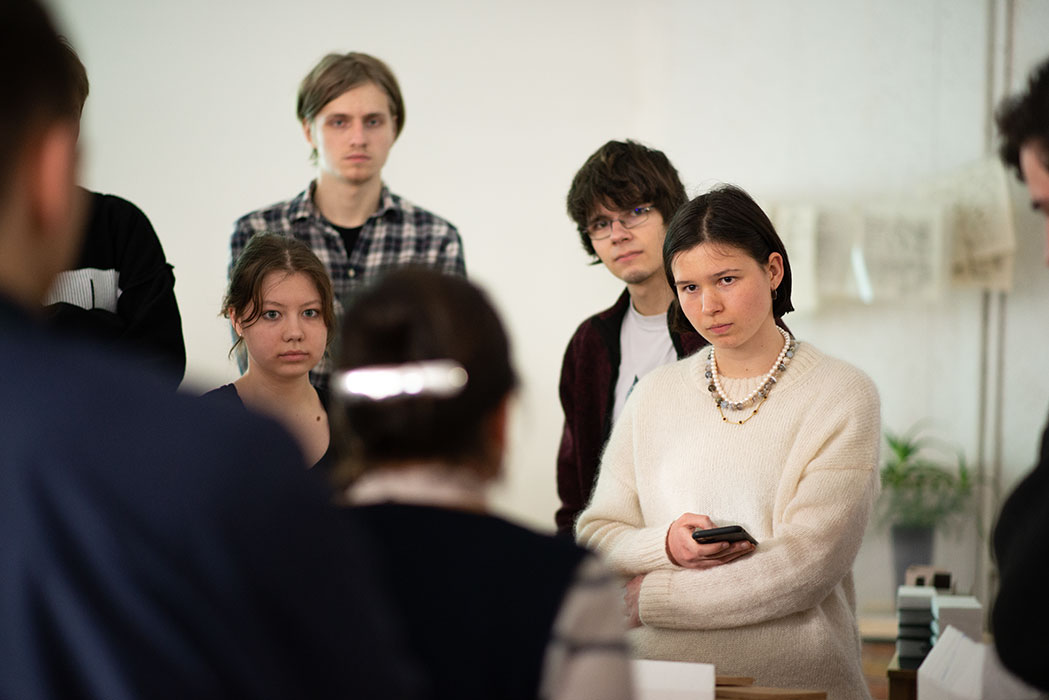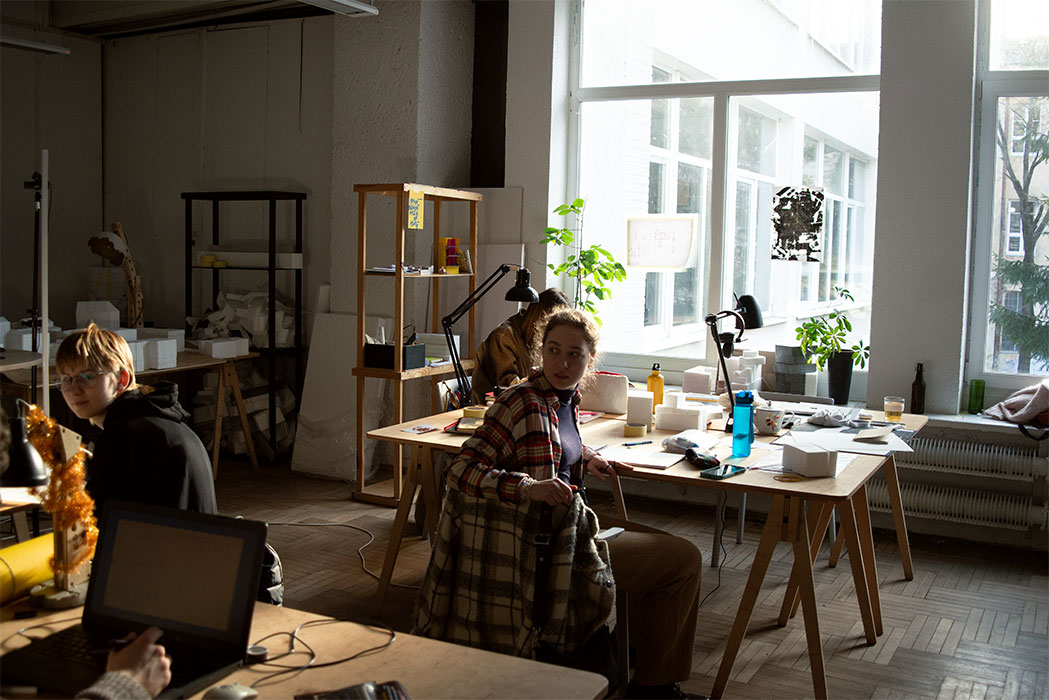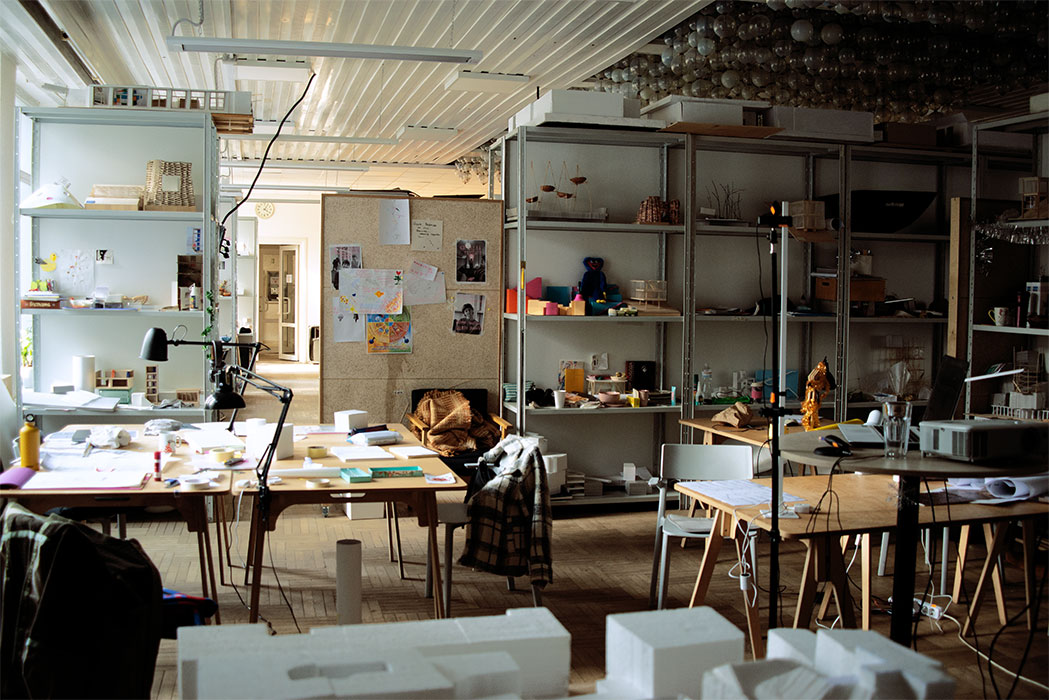Студійна система на сьогодні є загальноприйнятим підходом архітектурної освіти у світі. ХША є єдиним архітектурним вишем в Україні, який практикує цю методику. Студійний формат – це перш за все відповідно спроєктований простір для навчання, який безпосереднього пов’язаний з методиками викладання. Студійний простір Школи максимально наближений до робочої атмосфери архітектурного бюро. Кожен/-на студент/-ка має своє робоче місце. Студенти/-ки проводять в студіях максимальну кількість часу. Це місце для занять, консультацій, самостійної роботи і відпочинку. Студія створює атмосферу, яка сприяє творчості та занурює студентів/-ок в процес проєктування.
Про ХША
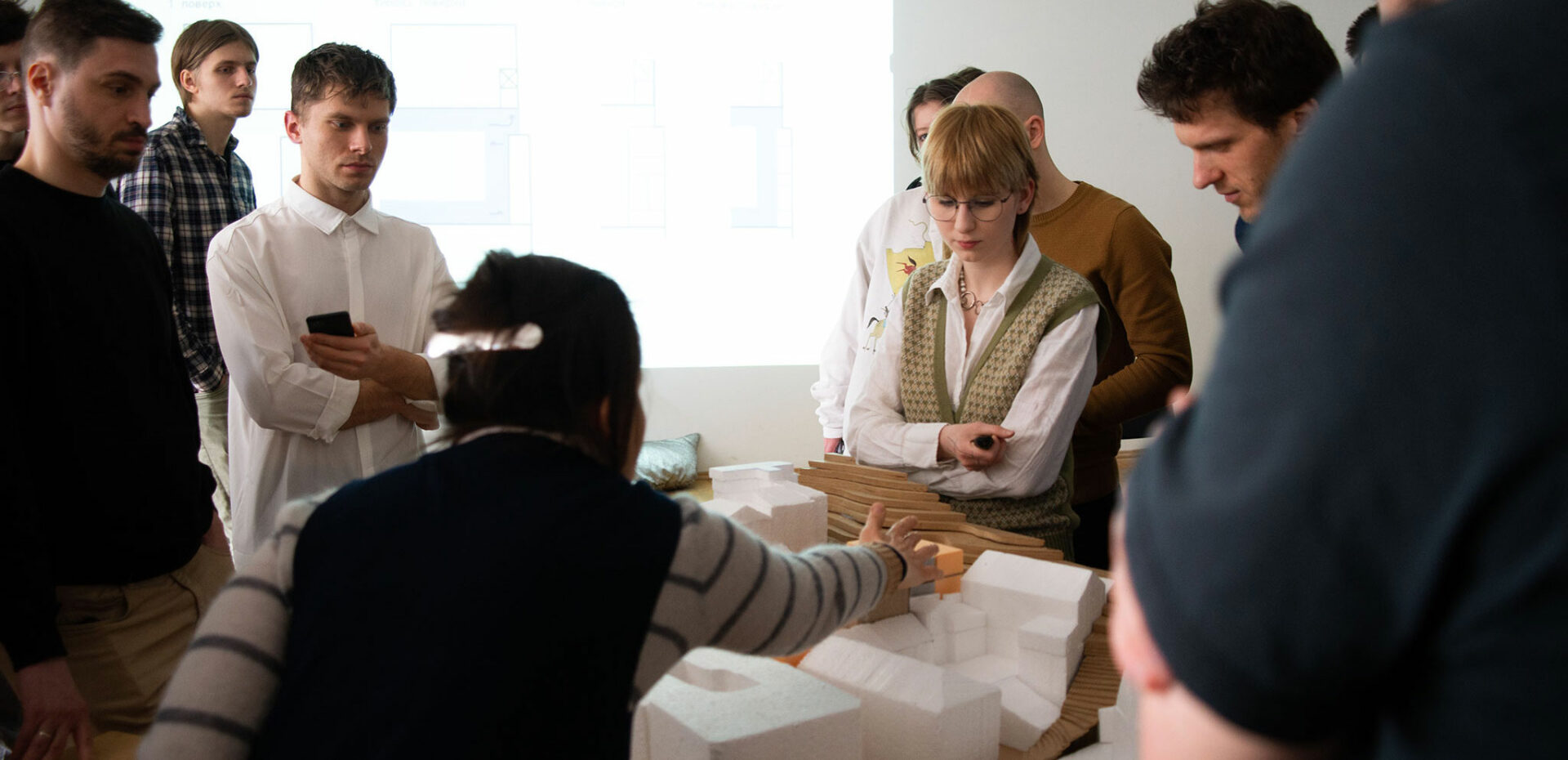
Харківська школа архітектури (ХША) – перший приватний заклад вищої освіти в Україні, який пропонує бакалаврську і магістерську програми з архітектури та урбанізму.
Школа відповідає європейським стандартам архітектурної освіти і адвокує актуальні підходи у викладанні в Україні. Бакалаврська та магістерська програми за спеціальністю G17 (старий шифр 191) “Архітектура та містобудування” ліцензовані МОН України. У квітні 2024 року освітня програма бакалаврату ХША отримала акредитацію на 5 років.
Заснована у 2017 році, як реакція на суспільні зміни і потребу переосмислення українських міст та реформування вищої освіти, Школа ставить за мету надавати студентам/-кам глобально-обґрунтовані та локально-релевантні знання для побудови нової якості міського життя.
Школа застосовує міжнародно визнану систему студійного навчання, співпрацює з провідними архітектурними школами Європи та запрошеними фахівцями-практиками, що забезпечує високі стандарти освіти та конкурентну кваліфікацію для випускників/-ць. Для молодого покоління ХША стала провідником у світ архітектури через взаємодію з професійними середовищами своїх прихильників і партнерів, які роблять великий внесок у дискусію про міське середовище в Україні.
З початком повномасштабного вторгнення Школа була релокована до Львова, що дозволило зберегти формат навчання наживо. У новому місті ХША набула видимості і поповнилася новими фахівцями/-чинями. Таким чином Школа досвідчила друге народження. Попри все Харків залишається у фокусі освітніх програм ХША.
-
“ДЛЯ НАШОЇ КРАЇНИ НІКОЛИ ТАК ГОСТРО НЕ ПОСТАВАЛО ПИТАННЯ АРХІТЕКТУРНОЇ ОСВІТИ. ЗАРАЗ РОЛЬ АРХІТЕКТОРА ВАЖЛИВА ЩЕ Й ЯК ЧУТЛИВОГО МОДЕРАТОРА СОЦІАЛЬНО-ЕКОНОМІЧНОГО РОЗВИТКУ ПРОСТОРІВ ТА МІСТ”.
“АРХІТЕКТУРНА ОСВІТА ПОВИННА БУДУВАТИСЯ НАСАМПЕРЕД НА СТУДЕНТСЬКИХ АМБІЦІЯХ. ТАКИХ “ЗАРЯДЖЕНИХ” ЛЮДЕЙ ЗАРАЗ СТАЄ ВСЕ БІЛЬШЕ І ВОНИ ВИМАГАЮТЬ СПРАВЖНЬОГО, АКТУАЛЬНОГО”.
-
— — ЗАСНОВНИК ШКОЛИ, ОЛЕГ ДРОЗДОВ
